
Workshop on Control for Networked Transportation Systems (CNTS)
July 8 - 9, 2019 | Philadelphia, Pennsylvania
Philadelphia Marriott Downtown in Franklin Hall 6
The workshop will be held as part of the 2019 American Control Conference.

CNTS Workshop Description
The rapid technological innovation occurring at nearly all modes of mobility is uniquely defining the present time as a period of dynamism in transportation systems. Shared mobility services, electric vehicles, near-real-time e-commerce delivery, and automated vehicles are just a few of the new types of emerging networked transportation systems application domains. These advances offer the promise to make transportation systems more sustainable, more resilient to disruption, more equitable, and more efficient, but this will only occur with the right fundamental insights to aid their design, deployment, and management.
One challenge inhibiting the potential promise of the next generation of networked transportation systems is caused by the disparate communities in which core theories and engineering techniques to manage their operations reside. The networked controls community has been responsible for developing decision science tools for wide classes of problems and application domains. The transportation science community has been developing models and methods to understand how people, infrastructure, and mobility devices interact.
The purpose of this NSF-sponsored workshop is the creation of a forum where the networked controls community and the transportation science community can begin to exchange ideas and perspectives on recent advances in the field as well as the core challenges inhibiting research progress on current and future networked transportation systems. This 1.5 day workshop will facilitate discussion among leading researchers and practitioners from academia, industry, and government through invited talks, panel discussions, and breakout sessions.
Workshop Dates
July 8-9, 2019
Philadelphia Marriott Downtown
1201 Market Street
Philadelphia, PA
Sponsors
The CNTS workshop is cosponsored by the NSF divisions on Civil Infrastructure Systems (CIS) and Energy, Power, Control, and Networks (EPCN)
Registration
There will be around 50 invited attendees from the controls and transportation communities. Also, a limited number of spots will be available for other ACC participants on a first come first serve basis. Participants can submit registration requests via the online form, and will be informed via email about availability of space.
Organizing Team
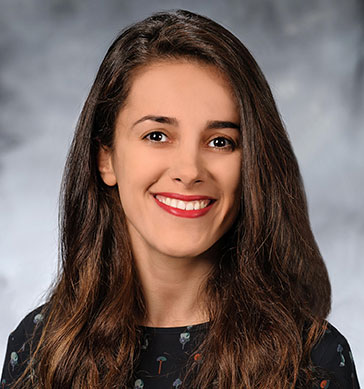
Mahnoosh Alizadeh
University of California, Santa Barbara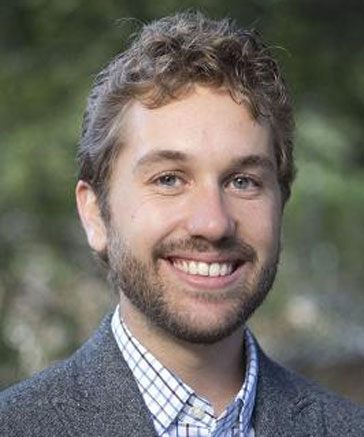
Sam Coogan
Georgia Institute of Technology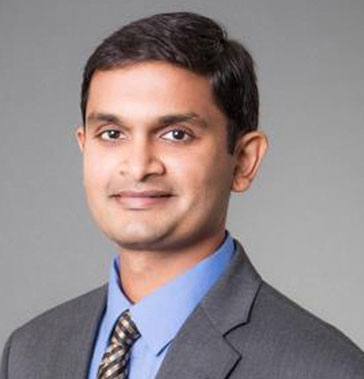
Ketan Savla
University of Southern California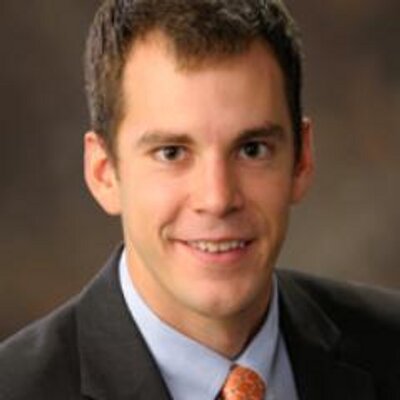
Dan Work
Vanderbilt University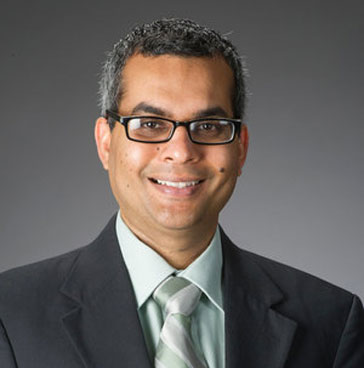
Vijay Gupta
Notre Dame UniversityProgram
| DAY 1 - JULY 8, 2019 - Location: Franklin Hall 6 | |
| 8:00 a.m. - 8:30 a.m. | Registration | Coffee |
| 8:30 a.m. - 8:40 a.m. | Welcoming Remarks and Workshop Overview Dan Work, Vanderbilt University (on behalf of the organizing committee) |
| 8:40 a.m. - 9:00 a.m. | Opening Remarks - NSF Perspective Kishan Baheti, Fil Bartoli, and Cynthia Chen, National Science Foundation |
| 9:00 a.m. - 9:30 a.m. | Controls Keynote: Addressing Urban Congestion with Dollars and Data Balaji Prabhakar, Stanford University |
| 9:30 a.m. - 9:45 a.m. | Short Talk: Ports in an Age of Information and Automation Elise Miller-Hooks, George Mason |
| 9:45 a.m. - 10:00 a.m. | Short Talk: Interactions Between Human-driven Vehicles and Automated Truck Platoons Karl Johansson, KTH |
| 10:00 a.m. - 10:30 a.m. | Coffee Break |
| 10:30 a.m. - 11:30 a.m. | Panel 1: Control of Tranportation in the Age of Connectivity and Autonomy Moderator: Vijay Gupta, Notre Dame Panelists: Necmiye Ozay, Michigan Yueyue Fan, UC Davis Saurabh Amin, MIT Roberto Horowitz, UC Berkeley 5 minute opening remarks per speaker, 30 minute discussion |
| 11:30 a.m. - 11:45 a.m. | Short Talk: Simulation-based Optimization Methods for High-dimensional Urban Mobility Problems Carolina Osorio, MIT |
| 11:45 a.m. - 12:00 p.m. | Short Talk: Integrating Vehicle Control with Traffic Management Murat Arcak, UC Berkeley |
| 12:00 p.m. - 1:00 p.m. | Networking Lunch (provided) |
| 1:00 p.m. - 1:30 p.m. | Transportation Keynote: Smart, Connected, Intelligent Mobility Networks: Why Is it Different This Time? Hani Mahmassani, Northwestern |
| 1:30 p.m. - 2:30 p.m. | Panel 2: Humans in Network Transportation Systems Moderator: Mahnoosh Alizadeh, UC Santa Barbara Panelists: Katie Driggs-Campbell, UIUC Samitha Smaranayake, Cornell University Yafeng Yin, Michigan 5 minute opening remarks per speaker, 30 minute discussion |
| 2:30 p.m. - 2:45 p.m. | Short Talk: How Many Smart Cars Does it Take to Make a Smart Traffic Network? Christos Cassandras, Boston University |
| 2:45 p.m. - 3:00 p.m. | Short Talk: Traffic Control and Routing in a Connected Vehicle Environment Michael Zhang, UC Davis |
| 3:00 p.m. - 3:30 p.m. | Coffee Break |
| 3:30 p.m. - 3:45 p.m. | Short Talk: Behavioral Considerations for Integrated Transport Modeling Frameworks in an Era of Disruptive Emerging Transportation Technologies Ram Pendyala, Arizona State |
| 3:45 p.m. - 4:00 p.m. | Short Talk: Socio-Technical Modeling, Control, and Optimization for Urban Mobility Anuradha Annaswamy, MIT |
| 4:00 p.m. - 4:15 p.m. | Short Talk: Designing the Multi-Modal Transit Marketplace Sid Banerjee, Cornell |
| 4:15 p.m. - 4:30 p.m. | Short Talk: Queues and Network Control for Traffic Systems Ketan Savla, USC |
| 4:30 p.m. - 4:45 p.m. | Short Talk: Integrating Autonomy into Urban Systems Cathy Wu, MIT |
| 5:00 p.m. | Informal Network Reception (no host) |
| DAY 2 - JULY 9, 2019 - Location: Franklin Hall 6 | |
| 8:00 a.m. - 8:30 a.m. | Coffee |
| 8:30 a.m. - 9:30 a.m. | Government Perspectives: Kishan Baheti, Energy, Power, Control, and Networks, National Science Foundation Cynthia Chen, Civil Infrastructure Systems, National Science Foundation David Kuehn, Exploratory Advanced Research Team, Federal Highway Administration Fred Leve, Air Force Office of Scientific Research |
| 9:30 a.m. - 10:00 a.m. | Controls Keynote: Traffic Flow Control in a Connected Environment Petros Ioannou, USC |
| 10:00 a.m. - 10:15 a.m. | Short Talk: Insights from Some Studies on Control in Traffic Networks Srini Peeta, Georgia Tech |
| 10:15 a.m. - 10:30 a.m. | Short Talk: Stop-and-Go Suppression for Congested Multi-Lane and Multi-Class Traffic Miroslav Krstić, UC San Diego |
| 10:30 a.m. - 10:45 a.m. | Short Talk: Opportunities for Efficient Driving with CAVs and Their Network-wide Impact Ardalan Vahidi, Clemson University |
| 10:45 a.m. - 11:00 a.m. | Coffee Break |
| 11:00 a.m. - 12:00 p.m. | Panel 3: Data Driven Methods for Smart Transportation Systems Moderator: Sam Coogan, Georgia Tech Panelists: Yannis Paschalidis, Boston University Marco Pavone, Stanford Lillian Ratliff, Washington Pascal Van Hentenryck, Georgia Tech 5 minute opening remarks per speaker, 30 minute discussion |
| 12:00 p.m. - 12:30 p.m. | Closing Discussion |
| 12:30 p.m. | Closing Remarks |
Abstracts & Bios (in order of program)
Addressing Urban Congestion with Dollars and Data
Balaji Prabhakar, Stanford University
The world consists of many things that move: People go to work, home, school, to shopping and entertainment centers every day, using public transit systems, cars and taxis. Goods move on roads, over water or by air; and food travels a long distance to meet its consumer. Thus, massive movement processes are underway in the world every day and it is critical to ensure their safe, timely and efficient operation. Towards this end, low-cost sensing and acquisition of the movement data is being achieved: from GPS devices, RFID and barcode scanners, to smart commuter cards and smartphones, snapshots of the movement process are becoming available. I will describe two tools for understanding and shaping urban mobility: (i) nudge engines, and (ii) a big data system for stitching together movement snapshots and reconstructing urban mobility at a very fine-grained level. I will describe how nudge engines have been used to address overcrowding in trains and roads in Singapore and Bangalore and at Stanford. I will also briefly describe how a big data system and some ML algorithms can be used to determine crowding at a train station, and answer questions such as: Do New York Knicks fans tip taxi rides more when their team wins than when it loses?
Balaji Prabhakar is VMWare Founders Professor of Computer Science and a faculty member in the Departments of Electrical Engineering and Computer Science at Stanford University. His research interests are in computer networks; notably, in Data Center Networks and Cloud Computing Platforms. He has also worked on Societal Networks: networks vital for society's functioning, such as transportation, electricity and recycling systems. He has developed "nudge engines" to incentivize commuters to travel in off-peak times so that congestion, fuel and pollution costs are reduced. He has been a Terman Fellow at Stanford University, and a Fellow of the Alfred P. Sloan Foundation, IEEE and ACM. He has received the NSF CAREER award, the Erlang Prize from the INFORMS Applied Probability Society, the Rollo Davidson Prize from the University of Cambridge, and delivered the Lunteren Lectures. He is the inaugural recipient of the IEEE Innovation in Societal Infrastructure Award which recognizes "significant technological achievements and contributions to the establishment, development and proliferation of innovative societal infrastructure systems. He is a co-recipient of several best paper awards.
Ports in an Age of Information and Automation
Elise Miller-Hooks, George Mason University
Ports are critical components of the global supply chain, providing key connections between land- and maritime-based transport modes. In some parts of the world, ports, especially container ports, are transitioning to state-of-the-art facilities with fully digitized, automated/self-driving operations. Their designs, operations and maintenance are supported by robotics, artificial intelligence and machine learning, digital twinning, augmented reality, and other recent technological advances. This presentation will discuss ports of the future, new vulnerabilities and the potential role of networked control in their operations and protection.
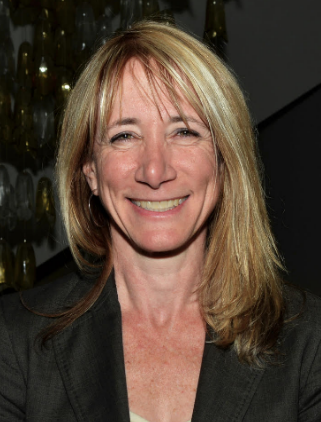
Dr. Elise Miller-Hooks holds the Bill and Eleanor Hazel Endowed Chair in Infrastructure Engineering in the Sid & Reva Dewberry Department of Civil, Environmental, and Infrastructure Engineering at George Mason University. Prior to this appointment, Dr. Miller-Hooks served as Program Director (2014-2016) of the National Science Foundation (NSF) Civil Infrastructure Systems Program in the Engineering Directorate, lead Program Officer for the Critical Resilient Interdependent Infrastructure Systems and Processes (CRISP) solicitation, and a cognizant program officer on her division’s Smart and Connected Communities (i.e. Smart Cities) initiative. She has also served on the faculties of the University of Maryland, Pennsylvania State University and Duke University. Dr. Miller-Hooks received her Ph.D. (1997) and M.S. (1994) degrees in Civil Engineering from the University of Texas – Austin and B.S. in Civil Engineering from Lafayette College (1992). Her expertise is in: multi-hazard civil infrastructure resilience quantification; mathematical modeling and optimization for transportation systems; emergency/disaster planning and response; intermodal passenger and freight transport; real-time routing and fleet management; paratransit, ridesharing and bikeways; stochastic and dynamic network algorithms; and collaborative, competitive and multi-objective decision-making. Dr. Miller-Hooks serves on the editorial boards of Transportation Science (Associate Editor), Operations Research (Associate Editor), Journal of Intelligent Transportation Systems and Transportation Research Part B (Editorial Board Editor).
Interactions Between Human-driven Vehicles and Automated Truck Platoons
Karl H. Johansson, KTH Royal Institute of Technology, Sweden
Truck platooning reduces fuel consumption and enables a high level of vehicle automation. Many truck manufacturers are currently developing platooning technologies. One such European effort is in multi-brand platooning and is being studied within the ENSEMBLE project. Truck platooning on public highways leads naturally to interactions between automated platoons and human-driven cars. In this talk we will discuss some of the research challenges that arise due to such interactions. It will be argued that suitable human-robot models can yield better control of the automated trucks. The results will be illustrated by experiments done in collaboration with the truck manufacturers Scania and Volvo.
Karl Henrik Johansson is Professor at the School of Electrical Engineering and Computer Science, KTH Royal Institute of Technology. He received MSc and PhD degrees from Lund University. He has held visiting positions at UC Berkeley, Caltech, NTU, HKUST Institute of Advanced Studies, and NTNU. His research interests are in networked control systems, cyber-physical systems, and applications in transportation, energy, and automation. He has served on the IEEE Control Systems Society Board of Governors, the IFAC Executive Board, and the European Control Association Council. He has received several best paper awards and other distinctions from IEEE and ACM. He has been awarded Distinguished Professor with the Swedish Research Council and Wallenberg Scholar with the Knut and Alice Wallenberg Foundation. He has received the Future Research Leader Award from the Swedish Foundation for Strategic Research and the triennial Young Author Prize from IFAC. He is Fellow of the IEEE and the Royal Swedish Academy of Engineering Sciences, and he is IEEE Distinguished Lecturer.
Simulation-based Optimization Methods for High-dimensional Urban Mobility Problems
Carolina Osorio, MIT
In this talk, we present modeling and optimization methods for a broad class of high-dimensional simulation-based optimization problems. We consider both discrete and continuous optimization problems. We present recent results of their application for demand calibration problems for Berlin and Singapore, as well for car-sharing service design problems for Boston and New York City. The methods combine detailed urban mobility data with ideas from traffic flow theory, queueing theory, math programming and simulation-based optimization.
Carolina Osorio is an Associate Professor in the Department of Civil and Environmental Engineering (CEE) and in the Operations Research Center (ORC) at the Massachusetts Institute of Technology (MIT). Her work develops operations research techniques to inform the design and operations of urban mobility systems. It focuses on simulation-based optimization algorithms for, and analytical probabilistic modeling of, congested urban road networks. She was recognized as one of the outstanding early-career engineers in the US by the National Academy of Engineering's EU-US Frontiers of Engineering Symposium, and is the recipient of a US National Science Foundation CAREER Award, an MIT CEE Maseeh Excellence in Teaching Award, an MIT Technology Review EmTech Colombia TR35 Award, an IBM Faculty Award and a European Association of Operational Research Societies (EURO) Doctoral Dissertation Award.
Integrating Vehicle Control with Traffic Management
Murat Arcak, UC Berkeley
This talk will promote a cross-layer approach to traffic management and present two examples in which vehicle-level actions are tightly integrated with higher-level traffic control objectives. We will first demonstrate the potential to increase traffic throughput at intersections with cooperative vehicle platooning, and present a control architecture that leverages V2V communications to accomplish this task. We will next discuss a speed advisory system that informs each vehicle approaching an intersection with actuated traffic lights whether it can pass within the current green phase.

Murat Arcak is a professor at U.C. Berkeley in the Department of Electrical Engineering and Computer Sciences. He received the B.S. degree in Electrical Engineering from the Bogazici University, Istanbul, Turkey (1996) and the M.S. and Ph.D. degrees from the University of California, Santa Barbara (1997 and 2000). His research is in dynamical systems and control theory with applications to synthetic biology, multi-agent systems, and transportation. He received the Donald P. Eckman Award from the American Automatic Control Council in 2006, the Control and Systems Theory Prize from the Society for Industrial and Applied Mathematics (SIAM) in 2007, and the Antonio Ruberti Young Researcher Prize from the IEEE Control Systems Society in 2014.
Smart, Connected, Intelligent Mobility Networks: Why Is it Different This Time?
Hani S. Mahmassani, Northwestern University
Transportation systems have undergone several waves of activity aimed at leveraging sensing and information technologies towards more intelligent traveler-vehicle-infrastructure systems. Each wave brought along considerable promise and lofty program goals of efficient flow and seamless mobility. Yet by all measurable indicators traffic congestion has consistently worsened in most metropolitan areas, mobility remains the bane of modern life in today’s cities, transit ridership has declined as services have become less reliable. But all of us can find our way anywhere in the world using navigation services on our mobile devices, and in many cities can get a ride at the push of a button. We are yet again on the cusp of major disruptive forces in transportation and mobility— Autonomous, Connected, Electric, Shared are some of the key attributes of the anticipated revolution. These pose considerable technical and institutional challenges, but promise a new era of efficient and sustainable mobility. What is different this time? We address some of the key driving forces, research challenges, and why it might indeed be different this time.
Hani S. Mahmassani is a William A. Patterson Distinguished Chair in Transportation and Director of the Northwestern University Transportation Center (NUTC), Northwestern University. He specializes in multimodal transportation systems analysis, planning and operations, dynamic network modeling and optimization, transit network planning and design, dynamics of user behavior and telematics, telecommunication-transportation interactions, large-scale human infrastructure systems, and real-time operation of logistics and distribution systems.
How Many Smart Cars Does it Take to Make a Smart Traffic Network?
Christos G. Cassandras, Boston University
Connected and automated vehicles (CAVs) promise to change the transportation landscape with safer, faster and more energy-efficient mobility. However 100% CAV penetration may never be achieved, raising the question of how to ensure a productive co-existence of CAVs with conventional vehicles while ensuring that the presence of CAVs benefits an entire traffic network. Using non-signalized intersections with such mixed traffic, the impact of CAVs on overall energy consumption has been investigated under different traffic conditions as a function of the CAV penetration rate (i.e., the fraction of CAVs relative to all vehicles). Results indicate that the energy efficiency improvement becomes more significant as the CAV penetration rate increases, while the significance diminishes as traffic becomes heavier. At a larger scale, we also find that a small fraction of CAVs can benefit non-CAVs, which raises interesting incentive-related questions.

Christos G. Cassandras is Distinguished Professor of Engineering at Boston University. He is Head of the Division of Systems Engineering, Professor of Electrical and Computer Engineering, and co-founder of Boston University’s Center for Information and Systems Engineering (CISE). He received a B.S. degree from Yale University, M.S.E.E from Stanford University, and S.M. and Ph.D. degrees from Harvard University. In 1982-84 he was with ITP Boston, Inc. where he worked on the design of automated manufacturing systems. In 1984-1996 he was a faculty member at the Department of Electrical and Computer Engineering, University of Massachusetts/Amherst. He specializes in the areas of discrete event and hybrid systems, cooperative control, stochastic optimization, and computer simulation, with applications to computer and sensor networks, manufacturing systems, and transportation systems. He has published over 400 refereed papers in these areas, and six books. He has guest-edited several technical journal issues and serves on several journal Editorial Boards. In addition to his academic activities, he has worked extensively with industrial organizations on various systems integration projects and the development of decision-support software. He has most recently collaborated with MathWorks, Inc. in the Dr. Cassandras was Editor-in-Chief of the IEEE Transactions on Automatic Control from 1998 through 2009 and has also served as Editor for Technical Notes and Correspondence and Associate Editor. He is currently an Editor of Automatica. He was the 2012 President of the IEEE Control Systems Society (CSS). He has also served as Vice President for Publications and on the Board of Governors of the CSS, as well as on several IEEE committees, and has chaired several conferences. He has been a plenary/keynote speaker at numerous international conferences, including the American Control Conference in 2001, the IEEE Conference on Decision and Control in 2002 and 2016, and the 20th IFAC World Congress in 2017 and has also been an IEEE Distinguished Lecturer.
He is the recipient of several awards, including the 2011 IEEE Control Systems Technology Award, the Distinguished Member Award of the IEEE Control Systems Society (2006), the 1999 Harold Chestnut Prize (IFAC Best Control Engineering Textbook) for Discrete Event Systems: Modeling and Performance Analysis, a 2011 prize and a 2014 prize for the IBM/IEEE Smarter Planet Challenge competition (for a “Smart Parking” system and for the analytical engine of the Street Bump system respectively), the 2014 Engineering Distinguished Scholar Award at Boston University, several honorary professorships, a 1991 Lilly Fellowship and a 2012 Kern Fellowship. He is a member of Phi Beta Kappa and Tau Beta Pi. He is also a Fellow of the IEEE and a Fellow of the IFAC.
Traffic Control and Routing in a Connected Vehicle Environment
Michael Zhang, UC Davis
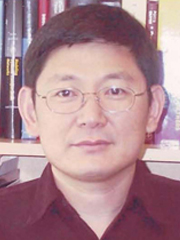
Michael Zhang is a professor in the Civil and Environmental Engineering Department at University of California Davis. His research is in traffic operations and control, transportation network analysis and intelligent transportation systems. Professor Zhang received his BS degree in Civil Engineering from Tongji University, and MS and PhD degrees in Engineering from University of California Irvine. He is an Area Editor of the journal Network and Spatial Economics, and an Associate Editor of Transportation Research, Part B: Methodological, and Transportation Science.
Behavioral Considerations for Integrated Transport Modeling Frameworks in an Era of Disruptive Emerging Transportation Technologies
Ram Pendyala, Arizona State University
A number of innovations in the transportation domain exhibit the potential to be mobility game-changers – transforming how people move between places, fulfill activities, and access goods and services. The emergence of mobility-as-a-service (MaaS), on-demand and flexible transport services, varying levels of automated and autonomous mobility systems, and delivery services (that bring goods and services to an individual’s doorstep) are upending the traditional transportation landscape. At the same time, the availability of big data streams – providing real-time information about movements of people and goods in time and space offers the ability to derive predictive analytics that can be used to influence traveler behavior and control and optimize network performance proactively. A number of integrated modeling tools have been and are being developed to reflect the dynamic interplay between travel demand and network state. With travelers being able to access mobility services and information anywhere anytime, how can integrated model systems be designed and specified to reflect behavioral choice dynamics in an era of ubiquitous connectivity? Ultimately, the impacts of emerging information systems and mobility services and technologies depends on how individuals will adopt, adapt to, and utilize the connected, shared, electrified, and automated systems. Many modeling studies use a variety of ad hoc assumptions to simulate the impacts of emerging technology scenarios and are not well informed by behavioral survey data. This presentation will offer behavioral insights from recent surveys and an architecture for integrated modeling that can incorporate behavioral considerations in a robust framework.

Ram Pendyala is a professor of transportation in, and the interim director of, the school of sustainable engineering and the built environment at Arizona State University, where he also serves as the director of a Tier 1 University Transportation Center called TOMNET. Prior to joining ASU in 2006, he served on the faculty at the University of South Florida for 12 years. Between 2014 and 2016, he served as the Frederick R. Dickerson Chair of transportation at Georgia Tech in the School of Civil and Environmental Engineering. Pendyala is widely known for his work in activity-travel behavior modeling, travel survey research, and demand forecasting. He has published more than 200 papers in journals, books, and conference proceedings and undertaken more than $10 million in research projects. He has served as Chair of the Traveler Behavior and Values Committee of the Transportation Research Board from 2003 to 2009, Chair of the Travel Analysis Methods Section between 2009 and 2015, and Chair of the International Association for Travel Behaviour Research from 2010 to 2012. More recently, he served as the Associate Editor of Transportation Research Part D and as Chair of the Transportation Research Board Planning and Environment Group between 2015 and 2018.
Socio-Technical Modeling, Control, and Optimization for Urban Mobility
Anuradha Annaswamy, MIT
Urban mobility in Transportation is witnessing a transformation to the emergence of new concepts in Mobility on Demand, where new modes of transportation other than private individual cars and public mass transit are being investigated. With a projection of an annual global travel of 2 billion vehicles on roads, an efficient realization of these concepts is urgently needed. One such paradigm is the notion of shared mobility on demand, which consists of customized dynamic routing for multi-passenger transport. A solution to this problem consists of a host of challenges that ranges from distributed optimization, behavioral modeling of passengers, traffic flow modeling, and distributed control. Recent efforts in our group have made some inroads into this problem and form the focus of this talk. A socio-technical model that combines behavioral models of passengers based on Prospect Theory and traffic flow models will be presented. The solution to dynamic routing is presented in the form of an optimization problem of Alternating Minimization. The model together with the optimization framework is then used to propose a dynamic tariff that can be viewed as a model-based control strategy based on Transactive Control, a methodology that is being explored in power grids for incentivizing flexible consumption.
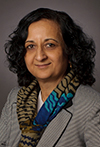
Dr. Anuradha Annaswamy is Founder and Director of the Active-Adaptive Control Laboratory in the Department of Mechanical Engineering at MIT. Her research interests span adaptive control theory and its applications to aerospace, automotive, and propulsion systems as well as cyber physical systems such as Smart Grids, Smart Cities, and Smart Infrastructures. Her current research team of 15 students and post-docs is supported at present by Air-Force Research Laboratory, Boeing, Ford-MIT Alliance, Department of Energy, and NSF. She has received best paper awards (Axelby; CSM) from IEEE CSS, and a PYI award from NSF. She is a Fellow of IEEE and IFAC. She will serve as the CSS President in 2020.
Designing the Multi-Modal Transit Marketplace
Sid Banerjee, Cornell University
Over the past few years, the controls, operations research and transportation communities have played a central role in designing the operations of ridesharing firms like Lyft and Uber. However, as these firms become bigger and more popular, the focus for researchers shifts from optimizing a single platform to understanding the effects of multiple platforms competing with other, and with other transportation modes, in particular, public transit. I will present some of our work in tackling these questions - in particular, in trying to understand the inefficiencies arising from having multiple ridesharing platforms, and the challenges of designing a mobility marketplace: a centralized platform where private mobility providers and public transit can jointly offer hybrid multi-modal trips to commuters.
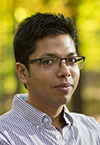
Sid Banerjee is an assistant professor in the School of Operations Research and Information Engineering (ORIE) at Cornell, and a technical consultant at Lyft. His research focusses on stochastic modeling and control, and the design of algorithms and incentives for large-scale systems. He received his PhD in ECE from UT Austin, following which he was a postdoctoral researcher in the Social Algorithms Lab at Stanford. His work is supported by an NSF CAREER award, as well as grants from the NSF and ARL.
Queues and Network Control for Traffic Systems
Ketan Savla, USC
Increasing connectivity and autonomy are providing novel opportunities for control of transportation systems at multiple spatio-temporal scales. There is an increasing need to formulate modeling and analytical frameworks for transportation that are amenable to tractable control synthesis, as opposed to only simulations. We present limitations of popular frameworks and their novel extensions, particularly with regards to queuing systems and network control. Specifically, we provide an overview of (i) high-resolution queuing models for tractable performance evaluation of emerging controlled mobility scenarios, and (ii) principled approaches to scalable feedback control of large-scale traffic systems using common sensing modalities.

Ketan Savla is the John and Dorothy Shea Early Career Chair in Civil Engineering and Associate Professor at the University of Southern California. His current research interest is in distributed robust and optimal control, dynamical networks, state-dependent queuing systems, and incentive design with applications to civil infrastructure and automated systems. His recognitions include NSF CAREER, an IEEE CSS George S. Axelby Outstanding Paper Award, and AACC Donald P. Eckman Award.
Integrating Autonomy into Urban Systems
Cathy Wu, MIT
How will self-driving cars change urban mobility? Leveraging and advancing model-free deep reinforcement learning and control theory, the talk demonstrates the potential of these techniques to gain insight into this question by enabling the discovery of emergent behaviors in complex transportation dynamical systems. In particular, the talk explores and quantifies the potential impact of a small fraction of automated vehicles on low-level traffic flow dynamics such as congestion on a variety of important traffic contexts. The optimization methods, empirical findings, and the systems that power them demonstrate how small changes in vehicles, sensors, and infrastructure can be harnessed for insights that inform decision making in future urban systems, from vehicle design to transportation planning to the design of future mixed autonomy systems.

Cathy Wu is an Assistant Professor at MIT in CEE, IDSS, and LIDS. She holds a PhD from UC Berkeley, and B.S. and M.Eng from MIT, all in EECS, and recently completed a Postdoc at Microsoft Research AI. She works at the intersection of machine learning, optimization, autonomy, and urban systems. Her work has been acknowledged by several awards, including the 2019 Microsoft Location Summit Hall of Fame, 2018 Milton Pikarsky Memorial Dissertation Award, the 2016 IEEE ITSC Best Paper Award, and fellowships from NSF, Berkeley Chancellor, NDSEG, and Dwight David Eisenhower.
Traffic Flow Control in a Connected Environment
Petros Ioannou, University of Southern California
Self- Driving cars are attracting a lot of attention and excitement as they will impact driving comfort and safety as well as modify the current modes of transporting people and goods. Getting rid of the driver however will not necessarily reduce congestion whose main cause is the high volume of vehicles competing in space and time to reach destinations. Connectivity however and compliance to traffic management commands and traffic rules by vehicle autopilots will open the way for far better traffic flow control approaches with strong potential to improve capacity, manage congestion and incidents in a much more effective way. In this talk we present a combined lane change and variable speed control strategies to control traffic at bottlenecks and incidents. We use a modified version of the cell transmition model with capacity drop to model traffic at a bottleneck. We use a thorough analysis to identify all possible equilibrium points due to different demands and examine their stability properties when no control strategies are applied. We then design a lane change controller based on an adhoc approach where the control variable is the distance point at which vehicles are instructed to start changing lanes in order to eliminate or reduce the effect of capacity drop. We show that as the demand increases the network will become congested and settle at equilibrium states that involve high density and low flow. We propose a variable speed control strategy to protect the network by controlling the incoming flow. Unlike the open loop case the closed loop system has a unique equilibrium that corresponds to a point in the fundamental diagram with maximum flow and lowest possible density at all possible traffic demands. In addition we show analytically that this unique equilibrium point is exponentially stable. The lane change and variable speed controller designed based on simple macroscopic traffic flow models are evaluated using a microscopic traffic simulator of a real traffic network. The simulation results demonstrate the theoretical results under different incidents and demands.
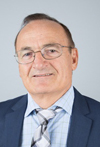
Petros A. Ioannou received the B.Sc. degree with First Class Honors from University College London, in 1978 and the M.S. and Ph.D. degrees from the University of Illinois, Urbana, Illinois, in 1980 and 1982, respectively. In 1982, he joined the Department of Electrical Engineering-Systems, University of Southern California, where he is currently a Professor and holder of the A.V. ‘Bal’ Balakrishnan Chair. He is the Director of the Center of Advanced Transportation Technologies, the Associate Director for Research of METRANS, a University Transportation Center. His research interests are robust adaptive control and applications and intelligent transportation systems for moving goods and people.
Dr. Ioannou received many research awards with the most recent ones been the 2016 IEEE Transportation Technologies Field Award, the IEEE Control System Society Transition to Practice Award for his work on the design and commercialization of Adaptive Cruise Control Systems and the 2012 IEEE Intelligent Transportation System Society Research Award. He is a Fellow of IEEE, IFAC, IET and AAAS and the author/co-author of 8 books and over 300 research papers. He served as consultant on numerous control system applications and expert witness on vehicle control and safety.
Insights from Some Studies on Control in Traffic Networks
Srinivas Peeta, Ph.D. - Georgia Institute of Technology
This talk will summarize insights, needs and challenges based on some past studies focused on control of dynamic traffic networks that factor traffic flow dynamics and traveler/driver behavior, and/or seek to leverage emerging technologies in transportation.

Srinivas Peeta is the Frederick R. Dickerson Chair and Professor in the School of Civil and Environmental Engineering, with a joint appointment in the H. Milton Stewart School of Industrial and Systems Engineering at Georgia Institute of Technology. He is also a Principal Research Faculty at the Georgia Tech Research Institute. Prior to that, he was the Jack and Kay Hockema Professor in Civil Engineering at Purdue University and the Director of the NEXTRANS Center, formerly the U.S. Department of Transportation’s (USDOT’s) Federal Region 5 University Transportation Center. He was also the Associate Director of USDOT’s Center for Connected and Automated Transportation at Purdue University. He received his B.Tech., M.S. and Ph.D. degrees from the Indian Institute of Technology (Madras), Caltech, and The University of Texas at Austin, respectively. He previously served as Chair (2007-2013) of the Committee on Transportation Network Modeling of the Transportation Research Board of the U.S. National Academies. He is also a member of International Federation of Automatic Control Technical Committee on Transportation Systems. He has authored over 315 peer-reviewed publications and serves on the editorial boards of several journals. His research interests are multidisciplinary and broadly span transportation and infrastructure systems.
Stop-and-Go Suppression for Congested Multi-Lane and Multi-Class Traffic
Miroslav Krstić, UC San Diego
PDE backstepping has recently enabled the stabilization of congested upstream traffic, with ramp metering, for the state-of-the-art Aw-Rascle-Zhang PDE model. I will present the ideas behind extending such control strategies to ARZ-like PDE models of multi-lane freeways and of freeways with multiple classes of vehicles (e.g., cars and trucks) or drivers (e.g., young and old, or human-driven and driverless). This is the work by my students Huan Yu and Mark Burkhardt.
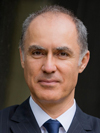
Miroslav Krstić is Distinguished Professor of Mechanical and Aerospace Engineering, holds the Alspach endowed chair, and is the founding director of the Cymer Center for Control Systems and Dynamics at UC San Diego. He also serves as Senior Associate Vice Chancellor for Research at UCSD. As a graduate student, Krstić won the UC Santa Barbara best dissertation award and student best paper awards at CDC and ACC. Krstić has been elected Fellow of seven scientific societies - IEEE, IFAC, ASME, SIAM, AAAS, IET (UK), and AIAA (Assoc. Fellow) - and as a foreign member of the Serbian Academy of Sciences and Arts and of the Academy of Engineering of Serbia. He has received the SIAM Reid Prize, ASME Oldenburger Medal, Nyquist Lecture Prize, Paynter Outstanding Investigator Award, Ragazzini Education Award, Chestnut textbook prize, Control Systems Society Distinguished Member Award, the PECASE, NSF Career, and ONR Young Investigator awards, the Axelby and Schuck paper prizes, and the first UCSD Research Award given to an engineer. Krstić has also been awarded the Springer Visiting Professorship at UC Berkeley, the Distinguished Visiting Fellowship of the Royal Academy of Engineering, and the Invitation Fellowship of the Japan Society for the Promotion of Science. He serves as Editor-in-Chief of Systems & Control Letters and has been serving as Senior Editor in Automatica and IEEE Transactions on Automatic Control, as editor of two Springer book series, and has served as Vice President for Technical Activities of the IEEE Control Systems Society and as chair of the IEEE CSS Fellow Committee. Krstić has coauthored thirteen books on adaptive, nonlinear, and stochastic control, extremum seeking, control of PDE systems including turbulent flows, and control of delay systems.
Opportunities for Efficient Driving with CAVs and Their Network-wide Impact
Ardalan Vahidi, Clemson University
Connected and automated vehicles (CAV) are marketed for their increased safety, driving comfort, and time saving potential. With much easier access to information, increased processing power, and precision control, they also offer unprecedented opportunities for energy efficient driving. This talk highlights the energy saving potential of connected and automated vehicles based on first principles of motion, optimal control theory, and practical examples from our previous and ongoing research. Connectivity to other vehicles and infrastructure allows better anticipation of upcoming events, such as hills, curves, slow traffic, state of traffic signals, and movement of neighboring vehicles. Automation allows vehicles to adjust their motion more precisely in anticipation of upcoming events, and save energy. Opportunities for cooperative driving could further increase energy efficiency of a group of vehicles by allowing them to move in a coordinated manner. Energy efficient motion of connected and automated vehicles could have a harmonizing effect on mixed traffic, leading to additional energy savings for neighboring vehicles.
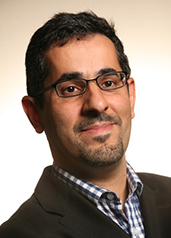
Ardalan Vahidi is a Professor of Mechanical Engineering at Clemson University, South Carolina. He received his Ph.D. in mechanical engineering from the University of Michigan, Ann Arbor, in 2005, M.Sc. in transportation safety from George Washington University, Washington, DC, in 2002, and B.S. and M.Sc. from Sharif University, Tehran in 1996 and 1998, respectively. In 2012–2013 he was a Visiting Scholar at the University of California, Berkeley. He has also held scientific visiting positions at BMW Technology Office in California, and at IFP Energies Nouvelles, in France. His research is at the intersection of energy, vehicular systems, and automatic control. His recent publications span topics in alternative vehicle powertrains, intelligent transportation systems, and connected and autonomous vehicle technologies.
Confirmed Participants
| NAME | AFFILIATION |
| Mahnoosh Alizadeh | University of California Santa Barbara |
| Saurabh Amin | Massachusetts Institute of Technology |
| Anuradha Annaswamy | Massachusetts Institute of Technology |
| Murat Arcak | UC Berkeley |
| Tyler Ard | Clemson University |
| Faraz Ashtiani | Clemson University |
| Radhakisan Baheti | National Science Foundation |
| Siddhartha Banerjee | Cornell University |
| Fil Bartoli | National Science Foundation |
| Jordan Berg | National Science Foundation |
| Gianluca Bianchin | University of California, Riverside |
| Zoleikha Biron | University of Florida |
| Subhonmesh Bose | University of Illinois at Urbana Champaign |
| Candace Brakewood | University of Tennessee |
| Philip Brown | University of Colorado, Colorado Springs |
| Christos Cassandras | Boston University |
| Rahul Chandan | University of California, Santa Barbara |
| Cynthia Chen | National Science Foundation |
| Fang-Chieh-Chou | University of California, Berkeley |
| Samuel Coogan | Georgia Tech |
| Swaroop Darbha | Texas A&M University |
| Xuan (Sharon) Di | Columbia University |
| Thinh Doan | Georgia Institute of Technology |
| Katherine Driggs-Campbell | University of Illinois at Urbana-Champaign |
| Yueyue Fan | University of California, Davis |
| Derek Gloudemans | Vanderbilt University |
| Xiangyang Guan | University of Washington |
| Vijay Gupta | University of Notre Dame |
| Roberto Horowitz | University of California, Berkeley |
| Yue Hu | Vanderbilt University |
| Petros Ioannou | University of Southern California |
| Li Jin | New York University |
| Karl H. Johansson | KTH Royal Institute of Technology |
| Miroslav Krstić | University of California, San Diego |
| David Kuehn | FHWA |
| Anthony Kuh | National Science Foundation |
| Robert Landers | National Science Foundation |
| Cedric Langbort | University of Illinois at Urbana-Champaign |
| Frederick Leve | AFOSR |
| Hani Mahmassani | Northwestern University |
| Jason Marden | University of California, Santa Barbara |
| Negar Mehr | University of California, Berkeley |
| Elise Miller-Hooks | George Mason University |
| Gustav Nilsson | Georgia Tech |
| Gabor Orosz | University of Michigan |
| Carolina Osorio | Massachusetts Institute of Technology |
| Necmiye Ozay | University of Michigan, EECS |
| Ioannis Paschalidis | Boston University |
| Marco Pavone | Stanford University |
| Srinivas Peeta | Georgia Institute of Technology |
| Ram Pendyala | Arizona State University |
| Ioannou Petros | University of Southern California |
| Pierluigi Pisu | Clemson University |
| Jorge Poveda | University of Colorado at Boulder |
| Lillian Ratliff | University of Washington |
| Samitha Samaranayake | Cornell University |
| Ketan Savla | University of Southern California |
| Sivaranjani Seetharaman | University of Notre Dame |
| Darbha Swaroop | Texas A&M University |
| Nathaniel Tucker | University of California, Santa Barbara |
| Ardalan Vahidi | Clemson University |
| Pascal Van Hentenryck | Georgia Institute of Technology |
| Ram Vasudevan | University of Michigan |
| Vikrant Vaze | Dartmouth College |
| Yanbing Wang | Vanderbilt University |
| Feilong Wang | University of Washington |
| Dan Work | Vanderbilt University |
| Cathy Wu | Massachusetts Institute of Technology |
| Yafeng Yin | University of Michigan |
| Huan Yu | University of California San Diego |
| Kuilin Zhang | Michigan Tech |
| Michael Zhang | University of California Davis |
| Yixian Zhu | University of Southern California |
Venue/Travel
Philadelphia Marriott Downtown
1201 Market St, Philadelphia, PA 19107
(215) 625-2900
This is part of the 2019 American Control Conference and hotel rooms can be booked using the ACC hotel block. Details are available at: http://acc2019.a2c2.org/conference/venue/
A 1-minute walk from Reading Terminal Market, this polished high-rise hotel is less than a mile from the Liberty Bell and Independence Hall.
There are 2 chic restaurants serving contemporary American dishes, as well as a Starbucks. Other amenities include an indoor pool and a fitness center, plus 92,000 sq ft of event space and a business center.
Travel Support
Support for travel is available for non-government participants. We expect to be able to reimburse your local hotel expenses of up to $250/night for two nights. For participants not already planning to attend ACC, we invite you to request an additional travel allotment to reduce the cost of your airfare. All reimbursements are conditional on final funding approval and amount by the National Science Foundation. See TRAVEL REQUIREMENTS AND GUIDELINES for more detailed information.
Please indicate on the REGISTRATION FORM if you are requesting reimbursement.
This is part of the 2019 American Control Conference and hotel rooms can be booked using the ACC hotel block. Details are available at: http://acc2019.a2c2.org/conference/venue/

